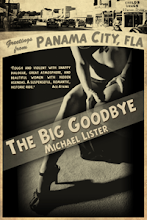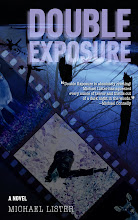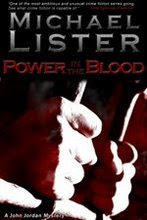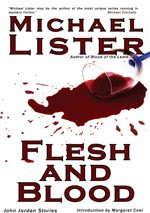
There are writers and then there are legends.
Though James Lee Burke is the former, he has most certainly become the latter.
Not only is Mr. Burke one of my favorite writers, but he’s been a huge influence on me, and a great source of inspiration.
Recently, he was honored by the Mystery Writers of America with the much-deserved, distinguished Grand Master award. In honor of this occasion, I’ve asked my friend and his daughter, Alafair Burke, to share with us her excellent essay about her dad and my hero. Here it is:
You will never hear James Lee Burke speak at a conference about how to market a novel, how to brand one’s work, or the importance of co-op money to the success of one’s sales. My father talks about writing not as a commercial enterprise, nor even as a craft or as art, but as a destiny.
If one looked only at early and recent years, his career might indeed feel inevitable. He published his first short story when he was nineteen years old and completed his first novel when he was twenty-three. Upon the publication of his debut, Half of Paradise, the New York Times Book Review declared him “a writer to be taken absolutely seriously.” By the time he was thirty-four, he had published two more novels, To the Bright and Shining Sun and Lay Down My Sword and Shield. Now, nearly forty years later, he is the best-selling author of twenty-seven novels and two short-story collections. He is a two-time winner of the Edgar Award. His flawed but noble New Iberia sheriff’s deputy, Dave Robicheaux, has been portrayed on film by two of a generation’s best actors, Alec Baldwin and Tommy Lee Jones.
But to equate writing as a destiny with the inevitability of a career is to ignore the years between the beginning and the recent and to conflate obsession with fate. My father published three novels by my second birthday, but The Lost Get Back Boogie, which was supposed to be his fourth, was rejected more than 100 times over nine years. And, at least as he describes it, the book wasn’t merely rejected. It was trashed. Literally. Mutilated pages would be returned in the mail, marred by whisky rings, cigarette burns, and ballpoint-pen-inflicted stab holes.
But although jobs and habits can be quit, an obsession cannot. My father became convinced he might never see his name on another hardback again, but he continued to write, and he did so without question. When a rejection came in the mail, he gave himself a 36-hour window to get the manuscript back on its way to another editor.
That ten-year period when James Lee Burke was out of print is now legendary inspiration for a new generation of writers, but I witnessed it firsthand. Against all reason, in a house packed with children, he constructed a desk with cinder block legs and a door for a top. After work, he wrote every single day at a manual Royal typewriter. On weekends, my mother would take us to the library and the mall, no-cost time suckers that bought my father some quiet time at home. The rejections kept coming, and new work continued to be produced.
His agent at William Morris was long gone, but he’d found a loyal, hardworking, and similarly unfazed advocate in agent Philip Spitzer, who finally had some good news. The Lost Get Back Boogie was still collecting rejections, but a newer manuscript, Two for Texas, would be published as a paperback original in 1982 My father kept writing. Three years later, LSU Press published a collection of his short stories entitled The Convict. He kept writing. A year later, the seemingly impossible happened: thanks again to LSU Press, The Lost Get Back Boogie wiped off the cigarette ash and whisky stains and became his fifth novel. We were still broke, but my father was in hardback again. And, of course, he kept writing. Then in 1984, on a vacation in Montana, family friend Rick DeMarinis suggested that he write a crime novel. In 1987, with the publication of The Neon Rain, readers finally met Vietnam Vet and recovering alcoholic Dave Robicheaux.
“You write it a day at a time and let God be the measure of its worth,” my father wrote for the New York Times’ Writers on Writing series. “You let the score take care of itself; and most important, you never lose faith in your vision… A real writer is driven both by obsession and a secret vanity, namely that he has a perfect vision of the truth, in the same way that the camera lens can close perfectly on a piece of the external world. If the writer does not convey that vision to someone else, his talent turns to a self-consuming bitterness.”
Readers who have read even a few James Lee Burke stories will recognize his vision on the page. It is a vision of honorable but flawed men challenged by an arbitrary and sometimes cruel fate. It is a vision of a specific but somehow transcendent era and region, a dying way of life in the south that tells a broader story about a decent but imperfect country savaged by mega-corporations, polluters, and a callous government. His vision was clear even in his debut novel, whose themes provoked a comparison from the Times to the works of Hemingway, Sartre, and Camus, where “man is doomed by no fatal flaw of character but by the simple fact of being born.”
And perhaps no stories tapped into his vision more aggressively than those that emerged from Katrina and its aftermath. When levees failed and the images of dark faces pleading for help on rooftops became salient reminders of an inept and indifferent political administration and broken government, many of us might have paused before allowing those stories to penetrate our fiction. But my father, not stopping to worry about the hate mail that would follow, embraced the role of narrative documentarian. “New Orleans was a poem, man,” a character recalls in his story, Jesus Out to Sea, “a song in your heart that never died. I only got one regret. Nobody ever bothered to explain why nobody ever came for us." Tin Roof Blowdown was not just the next book in the Robicheaux series, but a tribute to a beautiful and forsaken city, “killed three times, and not just by the forces of nature.”
The content and tone of my father’s post-Katrina work are unsurprising given his view of the writing process. He believes that his talent was not earned but was given to him for a specific purpose. He believes that the characters about whom he writes are not created by him, but live within the unconscious, waiting for their discovery. He does not outline and rarely sees beyond the next two scenes as he writes. He wrote about post-Katrina Louisiana because he was meant to.
But commercial success was not inevitable. Without a dogged agent, without LSU Press, without a friend who suggested, What about crime fiction?, without a working wife who also got those batty kids out of the house on the weekends, it might have all been different. We may not have been blown away by the poetry of twenty-seven James Lee Burke novels, losing ourselves in green-gold hazes over the bayou or in the shadows of cottonwoods lining the Bitterroot, or have befriended Dave Robicheaux, Clete Purcell, and Billy Bob Holland. But my father would still be writing.
Dad, none of it has gone unnoticed. Congratulations.















